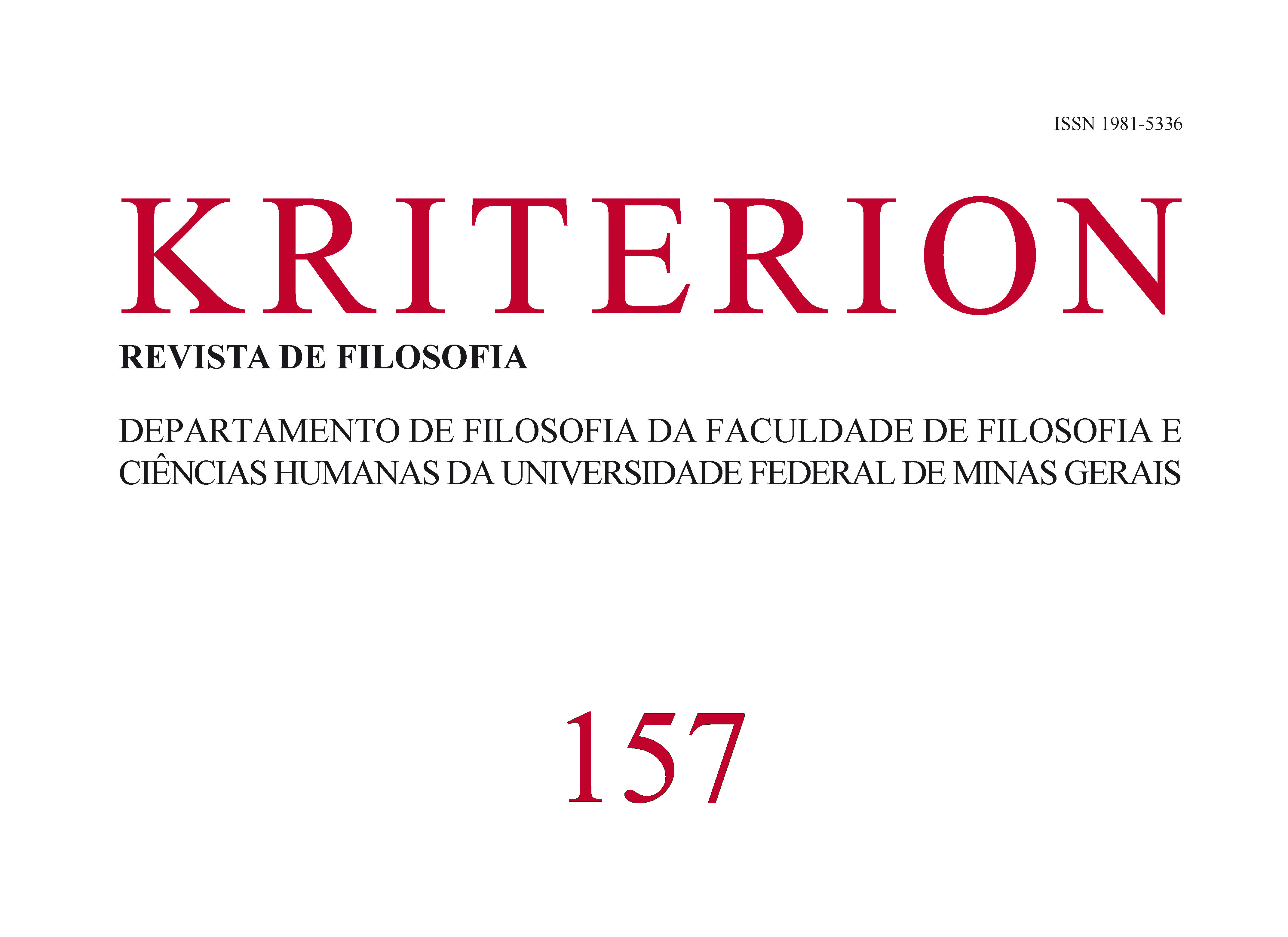IDENTIDAD Y ANTAGONISMO EN EL PENSAMIENTO DE ERNESTO LACLAU
Palavras-chave:
Ernesto Laclau, el sujeto, lo político, identidad y diferenciaResumo
En el presente trabajo se intentará determinar los aspectos fundamentales del pensamiento de Laclau a partir de la consideración del papel central que tienen en él el sujeto y lo otro, tanto en el ámbito individual como en el colectivo o político. Si bien las diferencias son condición de la actualización de la consciencia, se mostrará que la concepción del sujeto de Laclau presenta ciertas insuficiencias, las cuales se vuelven especialmente relevantes al momento de abordar lo político. Es pertinente advertir, como hace Laclau, respecto de los límites de una concepción política cuya base es una identidad individual y colectiva soberana. Sin embargo, se ha de reparar en el significado unitario que también define la existencia individual y colectiva. Hecha esa salvedad, trataré de mostrar en qué sentido la concepción política antagonística de Laclau es adecuada para una comprensión no reduccionista de la indeterminación y alteridad que constan con lo político, y que vuelven imposible e indeseable su reducción, sin resguardos suficientes, según parámetros racionales.
Referências
ATRIA, F. “La verdad y lo político”. En Persona y sociedad XXIII/1 y 2 (2006), pp. 21-50 y pp. 36-64.
______. “Neoliberalismo con rostro humano”. Santiago: Catalonia, 2013.
______. “Razón bruta”. Santiago: Autoedición, 2018.
BACCHI, C., RÖNNBLOM, M. “Feminist Discursive Institutionalism – A Poststructural Alternative”. En NORA – Nordic Journal of Feminist and Gender Research, 22, pp. 170-186, 2014.
BOUCHER, G. “The Charmed Circle of Ideology: A Critique of Laclau and Mouffe, Butler and Zizek”. Melbourne: Re.Press, 2008.
DERRIDA, J. “Speech and Phenomena and Other Essays on Husserl’s Theory of Signs”. Trans. D. B. Allison. Evanston: Northwestern University Press, 1973.
FICHTE, J. “Gottlieb. Wissenschaftslehre nova methodo, Gesamtausgabe”. Stuttgart/Bad Cannstatt: Frommann- Holzboog, 1962, parte IV, Vol. II.
FRANK, M. “Was ist Neostrukturalismus”. Frankfurt: Suhrkamp, 1984.
______. “Die Grenzen der Verständigung”. Frankfurt: Suhrkamp, 1988.
______. “Eine Einführung in Schellings Philosophie”. Frankfurt: Suhrkamp, 1995.
______. “Unendliche Annäherung. Die Anfänge der philosophischen Frühromantik”. Frankfurt: Suhrkamp, 1997.
______. “Fragments of a History of the Theory of Self-Consciousness from Kant to Kierkegaard.” En Critical Horizons 5, pp. 53-136, 2004.
HABERMAS, J. “Vorstudien und Ergänzungen zur Theorie des kommunikativen Handelns”. Frankfurt: Suhrkamp, 1984.
HENRICH, D. “Fichtes ursprüngliche Einsicht”. Frankfurt: Klostermann, 1967.
HERRERA, H. E. “Knowledge of the Whole in Friedrich Hölderlin’s ‘Being Judgement Possibility:’ Dieter Henrich and Manfred Frank’s Interpretations”. En Idealistic Studies 50, 2020, pp. 221-232.
HERRERA, H. E. “The basis for the unity of experience in the thought of Friedrich Hölderlin”. En History of European Ideas, 2023. DOI: 10.1080/01916599.2023.2258530.
HÖLDERLIN, J. C. F. “Frankfurter Ausgabe”. Frankfurt: Stroemfeld y Roter Stern,1975-2008.
HUDSON, P. A. “The Concept of Subject in Laclau”. En Politikon, 33, 2006, pp. 299-312.
JACOBS, T. “The Dislocated Universe of Laclau and Mouffe: An Introduction to Post-Structuralist Discourse Theory”. En Critical Review: A Journal of Politics and Society, 30, 2018, pp. 294-315.
______. “Poststructuralist discourse theory as an independent paradigm for studying institutions: Towards a new definition of ‘discursive construction’ in institutional analysis”. En Contemporary Political Theory, 18, 2019, pp. 379-401.
KANT, I. “Kritik der reinen Vernunft”. Hamburgo: Meiner, 1998.
LACLAU, E. “New Reflections on the Revolution of our Time”. Nueva York: Verso, 1990.
______. “The Rhetorical Foundations of Society”. Nueva York: Verso, 2014.
______. “Emancipations”. Nueva York: Verso, 2006.
______. “On Populist Reason”. Nueva York: Verso, 2018.
LACLAU, E., MOUFFE, C. «Hegemony and Socialist Strategy”. Nueva York: Verso, 2001.
PLESSNER, H. “Macht und menschliche Natur. Gesammelte Werke V”. Frankfurt: Suhrkamp, 2003.
SCHELLING, F. W. J. “Bruno. Sämtliche Werke”. Ed. por K. F. A. Schelling. Stuttgart: Cotta 1856-1861, parte I, Vol. 4, pp. 213-332.
______. “Von der Weltseele. Sämtliche Werke”. Ed. por K. F. A. Schelling. Stuttgart: Cotta 1856-1861, parte I, Vol. 2, pp. 345-583.
______. “Philosophische Untersuchungen über das Wesen der menschlichen Freiheit. Sämtliche Werke”. Ed. por K. F. A. Schelling. Stuttgart: Cotta 1856-1861, parte I, Vol. 7, pp. 333-416.
SCHMITT, C. «Der Begriff des Politischen”. (8ª ed.) Berlín: Duncker & Humblot, 2009.
______. «Ex captivitate salus: Erfahrungen der Zeit 1945/47». (4ª ed.). Berlín: Duncker & Humblot, 2015.
______. “Glossarium”. Berlín: Duncker & Humblot, 2015b.
SMITH, A. M. “Laclau and Mouffe. The Radical Democratic Imaginary”. Oxford: Routledge, 1998.
Downloads
Publicado
Edição
Seção
Licença
Copyright (c) 2024 Revista Kriterion

Este trabalho está licenciado sob uma licença Creative Commons Attribution 4.0 International License.










